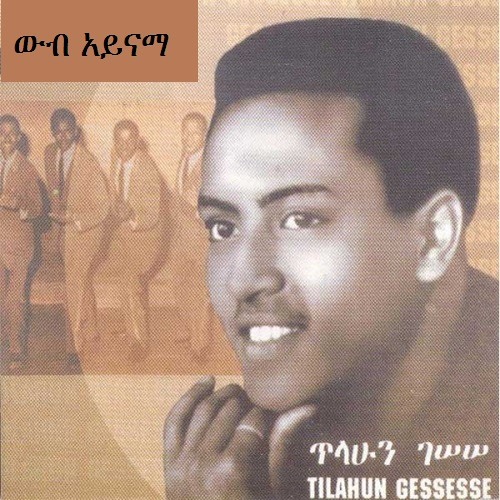ጥላሁን ገሰሰ | Tilahun Gessesse

Basic Identity
- Real Name and Stage Name : His birth name was Tilahun Gessesse, and he was professionally known by the same name. Tilahun was celebrated for his powerful tenor voice and his significant contributions to Ethiopian music, earning him the nickname "The Voice."
- Date and Place of Birth : Tilahun Gessesse was born on September 27, 1940, in Woliso, Shewa Governorate, Ethiopia (now part of the Oromia Region).
- Age / Current Age or Age at Death :Tilahun Gessesse passed away on April 19, 2009, at the age of 68.
- Parents (Mother and Father) : Tilahun was born to Gessesse Negusse (father) and Gete Gurmu (mother).
- Siblings : Public records do not provide detailed information about Tilahun Gessesse' s siblings.
- Background and Upbringing : Tilahun grew up in Woliso, where he attended Ras Gobena Elementary School. His passion for music was evident from a young age, despite his grandfather's encouragement to focus on academics. A pivotal moment came when the school's Sudanese principal, Mr. Shedad, recognized Tilahun's musical talent and encouraged him to pursue a career in music. Inspired, Tilahun made multiple attempts to travel to Addis Ababa to follow his musical aspirations, eventually succeeding and beginning his journey in the Ethiopian music scene.

Career
- Career Start and Early Breakthrough : Tilahun Gessesse began his musical journey in Addis Ababa by joining the Hager Fikir Association (now Hager Fikir Theatre), one of Ethiopia’s oldest artistic institutions. His powerful tenor voice quickly gained public attention. Shortly afterward, he joined the Imperial Bodyguard Band (Kibur Zebegna), where he rose to stardom. His first major breakthrough came in the late 1950s with the release of early singles like "Min Lik New" and “Ewedish Neber,” which showcased his emotive style and established him as a national icon. These songs marked the beginning of modern Ethiopian pop music and cemented his place in the country’s musical history.
- First Song / Breakthrough Hit : Tilahun's early hits, particularly “Ewedish Neber,” catapulted him into national fame. Released during his time with the Imperial Bodyguard Band, the song became an anthem of love and longing. Its success marked Tilahun as one of the first modern Ethiopian recording stars and a pioneer of contemporary Ethiopian music.
- Major Milestones and Achievements : Tilahun became Ethiopia’s most beloved male vocalist throughout the 1960s and 1970s. He performed before Emperor Haile Selassie I on multiple occasions and headlined national and cultural events. After a brief imprisonment in the aftermath of the failed 1960 coup d’état, he resumed his career at the National Theatre and continued producing hits such as “Yehun Nege,” “Selam Yihen,” and “Alchalkum.” He later contributed to humanitarian causes, performing at benefit concerts and releasing music to support famine relief efforts. His music was known for bridging modern pop with Ethiopian traditional melodies.
- Awards and Recognitions : Tilahun received numerous accolades throughout his life, including a Lifetime Achievement Award from the Ethiopian Fine Art and Mass Media Prize Trust and an Honorary Doctorate Degree from Addis Ababa University. He was also honored posthumously by both government and media institutions for his immense cultural legacy.
- International Reach and Diaspora Performances : Tilahun performed for Ethiopian communities abroad in cities like Washington D.C., London, and Riyadh. His concerts were landmark cultural events for the diaspora and served to introduce Ethiopian music to international audiences. His recordings also reached global platforms, making him one of Ethiopia's earliest musical ambassadors.
Albums
Tracks
| Sent Ayehu | Ay Zemen | Nafkotua |
| Wubit Wubit | Akal Ayneshen | Monaliza |
| Japanwan Wedje | Ere Endet | Ethiopia |

Personal Life
- Relationship Status and Children : Tilahun Gessesse was married and had children, although he remained discreet about his family in public interviews. One of his known children, Teddy Tilahun, followed in his father's artistic footsteps and has performed on tribute stages honoring his legacy. Despite his fame, Tilahun valued his privacy and shielded his family from media exposure. His music, however, frequently reflected deep emotional and personal themes, hinting at the importance of family and love in his life.
- Net Worth and Assets : Tilahun's exact net worth was never publicly disclosed. However, he was among the highest-paid musicians of his era, especially during the 1960s and 1970s. His income stemmed from record sales (vinyl and cassette), live performances, national events, and radio royalties. His legacy continues to generate posthumous revenue through digital platforms and tribute compilations.
- Current Residence and Lifestyle : Until his passing in April 2009, Tilahun Gessesse resided in Addis Ababa, Ethiopia. He led a balanced life that combined celebrity status with cultural responsibility. He was known for his humility, discipline, and devotion to Ethiopian heritage. Despite health challenges in his later years, including diabetes and heart issues, he remained active in the music scene until his death.
Business
- Business & Cultural Investment : Tilahun Gessesse played a foundational role in shaping modern Ethiopian music and cultural identity. Beyond performance, he collaborated with national orchestras like the Police Orchestra and the National Theatre to develop professional music institutions. He advocated for musicians’ rights and was instrumental in preserving Amharic music during politically repressive eras. His brand was rooted in patriotism, artistic excellence, and cultural pride. Tilahun also mentored young artists and was often consulted by state-run music programs, helping bridge traditional Ethiopian music with emerging sounds of the time.
-SOURCES-
Wikipedia
Balager Groove
Ezega.com
The Habesha
Ethiobiography.org
Sewasew
Last.fm
DBpedia
eajournals.org
Ethiopian Review
ZeHabesha
historic.nehabi.com
Discogs
Spotify
Apple Music
Bandcamp
Amazon
Ethiopian Gobgnu
artandculturemaven.com
Borkena
African Music Library
Ethiopian Business Review
